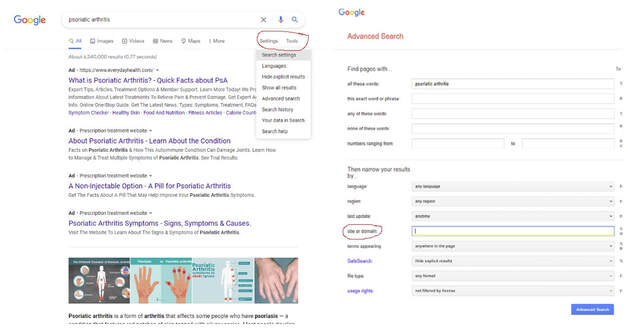|
Can you provide me with a source for your claim? How many times have we all seen that challenge issued to someone online? Usually, it happens during a nasty back-and-forth between two or more parties disagreeing on a topic. Facebook is great for this. Go there right now and I will wager that within less than a minute you will witness it. News pages and community groups are rife with them. It is exhausting feeling like you must do research for other people all the time. Why are they not capable of Googling themselves? Some people state as much when confronted with the demand for a source. Even when the other person plays along and lists a source, they are likely to be met with accusations of #fakenews. Sometimes legitimate information is deemed fake news because the other person does not want to concede that their points in the discussion are invalid. Other times, they may be right that the source another person is using to back their claim is less than reliable. I am about to drop a truth bomb on you. Not everything you see on Google is true. After you pick yourself up off the floor, read that again. Not everything you see on Google is true. There are entire websites that are chock full of someone’s opinion without any real evidence to support their claims. There are even so-called online “news” sites out there that post derogatory claims and twist facts to suit their narratives to garner views. They do this because they know it is darn near impossible to prove libel and defamation. Quite a bit of damage is done when people read and believe without verifying that what Google spits out in the search results comes from trustworthy sites. You cannot blame Google for offering up choices. The search engine giant uses an algorithm and web crawlers to search websites for keywords searchers are using. Then, it generates a list of websites and online resources with any mention of those keywords. It is up to the consumer to validate the information they are reading. This brings us to the topic of our post: how to ensure the information spit out by the all-knowing Google is from a credible source. Yes, this means you will have to do some digging. Yes, it means you will have to be responsible. Trust me, it is worth it. Knowledge is power. Make sure yours is gained from credible sources. Here are the top 3 ways to spot “fake news” and to validate the information you find online. 1. Consider the source Website credibility lends a lot of weight when determining the accuracy of information. For this reason, I suggest avoiding websites and other online sources that are user-created when digging for verifiable facts. It may rile a certain segment of the population when I say this, but Wikipedia is a perfect example of a user-created online source that is less than reliable. While it may look credible because there are sources cited, oftentimes those sources are misconstrued or misrepresented by the Wikipedia authors. If you want to validate any of those sources, go to them and read them directly from where they originate. If it is a scientific study, read it. Make sure what the Wikipedia post is claiming the study or research is saying is true. YouTube videos are another source rife with misinformation. Just because a “talking head” is stating something does not make it true. Many viral hoaxes begin on YouTube. Sometimes people create them for grins and giggles, and other times they are intended to deliberately deceive. YouTube’s algorithm is a huge part of the problem. So, how do you know when a website is legit for quoting as a source? Websites with articles, news, and even blogs that are verified by experts in the field it is representing are considered reliable. Here is a perfect example of what I mean. This website requires all materials to undergo a review by healthcare experts to verify information shared is accurate and follows best practices for the industry. If you look right underneath the headline for the article, it states who reviewed and verified the facts in the piece. Online resources that have expert reviews and cite sources are considered safe bets as well. Healthline is great at following this protocol. Their articles come with a fact-checked guarantee (along with information on who verified the facts), plus links to cited sourced within the text of the articles. 2. Check for satire The Onion. Babylon Bee. Sports Pickle. What do these three things have in common (besides being incredibly entertaining)? They are not real news sites. You would never know it, though, by how some people quote them online. These online publications are the first to loudly proclaim to their readers they are satire. Some people who miss the proclamations are utterly fooled by the content. I have witnessed more than one post consumed by outraged individuals convinced that articles with headlines like “CIA Replaces Waterboarding With 12-Hour Lectures On Intersectional Feminism” are even remotely factual. Even when someone else points out the article is satire, the original poster sometimes sticks by their claim that it is a valid source. I do not know what to tell you when that happens. Sometimes arguing with the ill-informed is not worth the energy. 3. Conduct an advanced search
Google has this handy setting on its search page that allows you to get specific about where you would like it to look for search results. Here is how it works. Once you enter a topic into the search bar, you will see the options for settings at the top right. Click on it and from the expanding menu select the option for advanced search. Here, you have a variety of options for streamlining your results. One I like to use is under the site or domain option. It allows you to require Google to search only sites with .edu or .gov, where information is fact-checked and verified via multiple sources. You also can head over to places like Research Gate to find peer-reviewed studies. Just the facts, ma'am These are just three of the ways you can make sure your sources are reputable before tossing them into the fray. Interested in learning more about spotting fake news? Check out my interview with Nour Negm, where we discuss some of the best sources online for verifying information before you post it. Happy fact-checking, everyone! And remember…there is no such thing as alternative facts.
0 Comments
Your comment will be posted after it is approved.
Leave a Reply. |
Categories
All
Archives
April 2024
|



